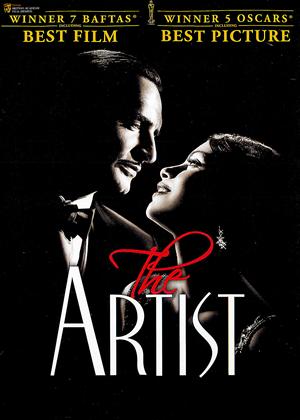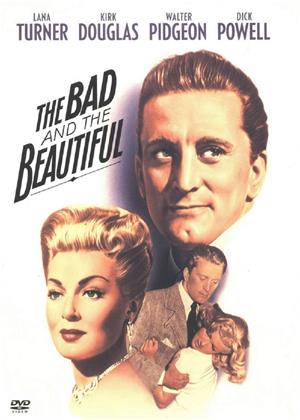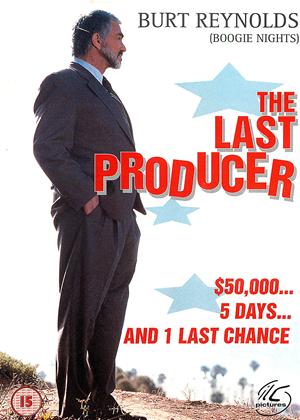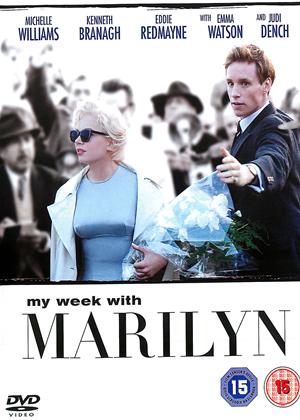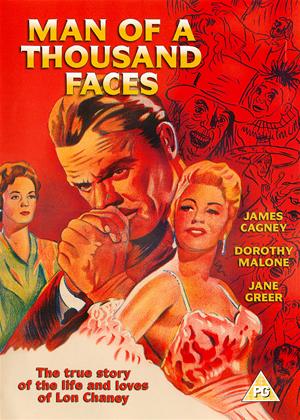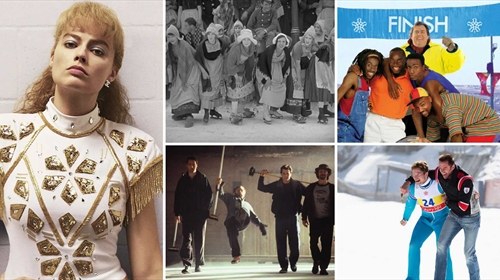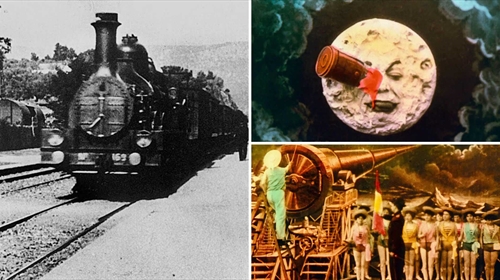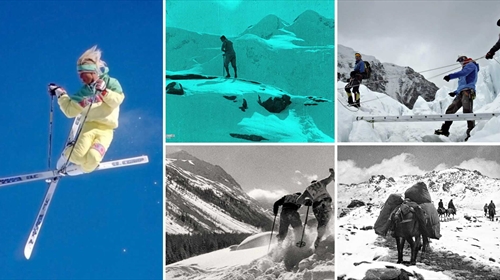History was made on 28 December 1895 in the Salon Indien of the Grand Café on the Boulevard des Capucines in Paris. Thirty-three people paid one franc each to watch the 10 short films projected with a Cinématographe by Auguste and Louis Lumière. In the process, they became the first paying audience to attend a motion picture show and, to mark the 125th anniversary of what has since been hailed as the 'birth of cinema', Cinema Paradiso celebrates with a two-part survey of films about film.
In fact, the Lumières shaped history to suit themselves, as they had been beaten to the punch by two other pioneering teams, Some time in late September 1895 at the Cotton States Exposition in Atlanta, Georgia, Thomas Armat and Charles Francis Jenkins had used a Phantoscope projector to show a selection of reels that had been produced for one of Thomas Alva Edison's Kinetoscope peepshow machines. Viewers had been asked to pay 25c on leaving the screening room, but nobody seems to know how much patrons of the Wintergarten Theatre on Martin Luther Strasse in Berlin had to fork out to see the nine shorts screened with a Bioskop projector on 1 November, as Max and Emile Skladanowsky's presentation was part of a music-hall bill.

Working with a team of film students, Wim Wenders recreated the event for A Trick of the Light (1996), which is available from Cinema Paradiso on Wim Wenders' Documentaries, which also contains Room 666 (1982), Tokyo-Ga (1985) and Notebook on Cities and Clothes (1989). Also included in this fascinating selection is Lightning Over Water (1979), which was made in collaboration with Wenders's favourite film-maker, Nicholas Ray, whose complicated private life forms part of the backstory in Paul McGuigan's thoughtful adaptation of Peter Turner's account of Oscar-winning actress Gloria Grahame's final days, Film Stars Don't Die in Liverpool (2017).
Reel Stories
While we're on the theme of pioneers, the cause of Britain's own cine-inventor, William Friese-Greene, is espoused with typical charm by Robert Donat in John Boulting's The Magic Box (1951), while Dan Cruickshank follows in the footsteps of his son, Claude, in Annabel Hobley's The Lost World of Friese-Greene (2006). Hitting the road to make movies is also the theme of Peter Bogdanovich's Nickelodeon (1976), a lively account of the Patent Wars that sees Leo Harrigan (Ryan O'Neal) and Buck Greenway (Burt Reynolds) set out to clamp down on those making unlicenced moving pictures and wind up changing sides.

The harum-scarum nature of early American cinema is also recalled by Pamela B. Green in Be Natural: The Untold Story of Alice Guy-Blaché (2018), which reveals how a game-changing Frenchwoman was airbrushed out of screen history. But the period was dominated by David Wark Griffith, an actor who turned his hand to directing in 1908 and helped shape film grammar with epics like The Birth of a Nation (1915) and Intolerance (1916). He was played by Charles Dance in Paolo and Vittorio Taviani's Good Morning, Babylon (1987) and Colm Feore in Bruce Beresford's And Starring Pancho Villa as Himself (2003), which stars Antonio Banderas as the Mexican bandit who invited Griffith to record history in the making.

Villa's homeland also fascinated Sergei Eisenstein, although the great Soviet director (Elmer Bäck) gets more than memorable footage while planning ¡Que viva México! in Peter Greenaway's Eisenstein in Guanajuato (2015). As E. Elias Merhige suggests in Shadow of the Vampire (2000), German ace Friedrich Wilhelm Murnau (John Malkovich) also struggled to keep a lid on things after he becomes concerned that Max Schreck (Willem Dafoe) is more than a Method actor while shooting the 1922 vampire classic, Nosferatu.
Robert Downey, Jr. rises to the challenge of playing Britain's most successful screen export in Richard Attenborough's Chaplin (1992), which casts Anthony Hopkins as an interviewer prompting Charlie Chaplin to reflect on how he became cinema's first superstar. There's a full range of Chaplin's shorts and features available from Cinema Paradiso. Simply type his name into the searchline and you can do the same with his erstwhile colleague in Fred Karno's comedy troupe, Stan Laurel. His twilight tour of Blighty is recalled with the aid of Steve Coogan and John C. Reilly (as Oliver Hardy) in Jon S. Baird's Stan & Ollie (2018), which was the subject of a Cinema Paradiso special feature.
Ken Russell ranks among cinema's least conventional biographers and he followed the composer trilogy of The Music Lovers (1970), Mahler (1974) and Lisztomania (1975) with Valentino (1977), which stars ballet legend Rudolf Nureyev as Rudolph Valentino, the prototype pin-up whose death at the age of 31 plunged his fans into hysterical mourning. The decadence of Jazz Age Hollywood was also captured by James Ivory in The Wild Party (1975), which is set at the cusp of the sound era. Among the many stage directors to defect to the film colony during this period was James Whale and his refusal to conform is celebrated in Bill Condon's Gods and Monsters (1998), which features an Oscar-nominated performance by Ian McKellen as the maker of Frankenstein (1931) The Invisible Man (1933) and Show Boat (1936).

Howard Hughes was more interested in aeroplanes than movies during the 1930s, but his flirtation with Tinseltown is stylishly recreated in Martin Scorsese's The Aviator (2004), which saw Cate Blanchett's turn as Katharine Hepburn become the first impersonation of an Academy Award winner to land an Oscar. Hughes would go on to own RKO, which was the first Hollywood home of wunderkind Orson Welles. Few directors have been depicted as often as the larger-than-life Wisconsinite, with Christian McKay bestriding Broadway with his trademark gusto in Richard Linklater's Me & Orson Welles (2009), which recalls the theatrical phase of the great man's career. The making of his masterpiece, Citizen Kane (1941), dominates both Benjamin Ross's RKO 281 (1999) and David Fincher's Mank (2020), in which Welles is respectively essayed by Liev Schreiber and Tom Burke. However, the role passes to Danny Huston in Oliver Parker's Fade to Black (2006), as Welles turns detective after a murder is committed on the Italian set of Gregory Ratoff's Black Magic (1949).
While Welles would be fated to fritter his talent by acting in inferior pictures to pay for his cherished directorial projects, Edward D. Wood, Jr. spent his life toiling in the cinematic basement. He's appealingly played by Johnny Depp in Tim Burton's Ed Wood (1994), which earned Martin Landau the Oscar for Best Supporting Actor for his display as the ailing Bela Lugosi, who had first found screen celebrity in Tod Browning's Dracula (1931). Laurence Olivier would essay Professor Van Helsing opposite Frank Langella's vampire in John Badham's Dracula (1979). But, as played by Kenneth Branagh in Simon Curtis's My Week With Marilyn (2011), Olivier had more trouble with Marilyn Monroe (Michelle Williams) while filming The Prince and the Showgirl (1957).

Despite his penchant for ice-cool heroines, blondes often proved problematic for Alfred Hitchcock, as is evidenced in two 2012 films, Sacha Gervasi's Hitchcock and Julian Jarrold's The Girl, which respectively recall the relationships between Hitch (Anthony Hopkins/Toby Jones) and Janet Leigh (Scarlett Johansson) and Tippi Hedren (Sienna Miller) during the making of Psycho (1960) and The Birds (1963). A mix of ego and libido also hampered the ex-Goon portrayed by the Emmy-winning Geoffrey Rush in Stephen Hopkins's The Life and Death of Peter Sellers (2004). Excuses were always made for Sellers's eccentricities, but the studios proved less willing to compromise when Melvin Van Peebles sought to make a film about the Black Power movement. In Baadasssss! (2003), Mario Van Peebles recalls the events that culminated in his father laying a cornerstone of Blaxploitation with Sweet Sweetback's Baadasssss Song (1971).
Hollywood Plays Itself - Then
Film-makers first alighted on Hollywood in 1908, when Francis Boggs and Thomas Persons completed the adaptation of Alexandre Dumas's The Count of Monte Cristo that they had started in Chicago. Two years were to elapse before D.W. Griffith made In Old California, while the first studio appeared among the orange groves on Sunset Boulevard in 1911. Sadly, Cinema Paradiso is unable to offer Thom Anderson's documentary, Los Angeles Plays Itself (2003), which shows how America's movie capital has depicted itself down the years. But it's still possible to rent dozens of high quality DVDs and Blu-rays about Tinseltown from the choicest selection available in the UK.
Fittingly, one of the oldest features about the studio system has a place in Hollywood history, as Emil Jannings won the inaugural Academy Award for Best Actor for his performances in Victor Fleming's now lost The Way of All Flesh (1927) and Josef von Sternberg's The Last Command (1928), in which the German plays a cousin of the Tsar, who is reduced to working as an extra after losing everything in the Russian Revolution of 1917. The silent era is also fondly recalled in Irving Cummings's Hollywood Cavalcade (1939) and Gene Wilder's The World's Greatest Lover (1977), in which the director doubles up to star as a Valentino-like idol.
In 1976, Mel Funn had the bright idea to turn back the clock and dispense with dialogue in his comeback project for Big Pictures. Fast forward a few decades and Michel Hazanavicius followed the prompt given by Mel Brooks's Silent Movie (1976) and enjoyed a surprise hit with The Artist (2011), which charts the fortunes of silent star George Valentin (Jean Dujardin) and his dog. Jack (Uggie). This might have converted five of its 10 Oscar nominations, including Best Picture and Actor, but the finest recreation of these mumming times and the problems that Hollywood had in adjusting to the newfangled sound technology remains Gene Kelly and Stanley Donen's Singin' in the Rain (1952), which follows the making of the Monumental Pictures musical, The Dancing Cavalier.

The late 1920s also provide the setting for Blake Edwards's Sunset (1988), as Wyatt Earp (James Garner) swallows his dislike of motion pictures to act as an adviser on a biopic starring cowboy superstar, Tom Mix (Bruce Willis). While this unlikely duo join forces solve a murder mystery, video store clerk-cum-aspiring film-maker Cheryl Dunye goes in search of elusive 1930s African-American actress Fae Richards in the self-directed gem, The Watermelon Woman (1996). Robert Townsend had also highlighted the problems facing black actors in the film industry in the regrettably unavailable comedy, Hollywood Shuffle (1987), but this remains a relatively unexplored topic.
The same can't be said for the story told in William A. Wellman's A Star Is Born (1937), which paired Janet Gaynor and Fredric March for the rags-to-riches saga that would be retold by George Cukor in 1954, with Judy Garland and James Mason stepping into the leads. All four were nominated for Oscars, but they missed out, as did Lady Gaga and Bradley Cooper for the 2018 version. Yet Barbra Streisand and Kris Kristofferson were overlooked altogether for the 1976 reboot that switched the focus away from movies to music. To learn more, check out Cinema Paradiso's Films to Watch If You Liked article.
The Golden Age of the 1930s is captured with contrasting degrees of cynicism in John Schlesinger's dazzlingly dark adaptation of Nathaniel West's The Day of the Locust (1975) and Elia Kazan's take on F. Scott Fitzgerald's The Last Tycoon (1976), in which Robert De Niro's Monroe Starr is based on MGM's Boy Wonder producer, Irving G. Thalberg, who had been played by future producer Robert Evans in Joseph Pevney's Man of a Thousand Faces (1957), which stars James Cagney as silent chameleon, Lon Chaney. Tom Hiddleston crops up as Fitzgerald in Woody Allen's Midnight in Paris (2011), which transports Hollywood screenwriter Owen Wilson back to the Left Bank at the height of the Jazz Age. This is one of several Allen scenarios with a movie-making theme and The Purple Rose of Cairo (1986), Stardust Memories (1980), Crimes and Misdemeanors (1989) and Café Society (2016) are all available with just one click from Cinema Paradiso.
The annus mirabilis for films about film-making is undoubtedly 1941, which perhaps explains why Joel and Ethan Coen chose it for Barton Fink (1991), the story of a Broadway playwright's struggles at Capitol Pictures that won the Palme d'or at Cannes, as well as the Best Director and Best Actor prize for John Turturro. In addition to Orson Welles using the making of a newsreel as the framing device for Citizen Kane, 1941 also saw director Joel McCrea set out in search of a meaningful subject for his next picture in Preston Sturges's Sullivan's Travels, bibulous hack W.C. Fields strive to sell a screenplay in Edward F. Cline's Never Give a Sucker an Even Break, and Ole Olsen and Chic Johnson attempt to salvage a Miracle Pictures musical in H.C. Potter's hugely influential madcap romp, Hellzapoppin' (all 1941).

There were more Pearl Harbory reasons why Steven Spielberg's 1941 (1979) was set during this most momentous of years, although the action does unfold in Los Angeles. The same city shares the focus with Toontown in Robert Zemeckis's Who Framed Roger Rabbit (1988), which harks back to 1947 for its account of the animated antics going on over at the Maroon Cartoon Studio. Coaltown, Pennsylvania provides the backdrop for Irving Pichel's The Miracle of the Bells (1948), which sees press agent Fred MacMurray feuding with producer Lee J. Cobb over the only film made by recently deceased actress, Alida Valli.
Frank Sinatra's performance as a priest has raised the odd eyebrow over the years, but bobbysoxers were spared the sight of him in a Roman centurion's tunic. The same isn't true for George Clooney's fans, however, as Baird Whitlock bares his knees to make a Capitol Pictures epic in Joel and Ethan Coen's Hail, Caesar! (2016). This is set a year after Humphrey Bogart and William Holden had respectively laid bare the struggles of the Hollywood screenwriter in Nicholas Ray's In a Lonely Place and Billy Wilder's Sunset Boulevard (1950), with the latter recycling footage from Gloria Swanson and Erich von Stroheim's 1928 collaboration on Queen Kelly.
Dixon Steele and Joe Gillis would also have had to watch out for name-naming colleagues during the Communist witch-hunt launched in the late 1940s by the House UnAmerican Activities Committee. Martin Ritt's The Front (1976) and Jay Roach's Trumbo (2015) recall this dark chapter with unflinching disdain for those who co-operated with HUAC. The aura of disillusion also seeped into every frame of Vincente Minnelli's masterly exposés, The Bad and the Beautiful (1952) and Two Weeks in Another Town (1962). Both star Kirk Douglas, although neither is currently on disc, even though their reverberations continue through to Frank Darabont's The Majestic (2001), which stars Jim Carrey as a blacklisted writer who helps renovate an old movie house while suffering from amnesia.

Despite the spirit of Frank Capra being evident in this undervalued drama, a sense of sourness also carries over from pictures like Robert Aldrich's The Big Knife (1955) and Clint Eastwood's White Hunter Black Heart (1990), which were respectively adapted from a play by Clifford Odets and a novel by Peter Viertel and focus on actor Jack Palance's bid for independence from Rod Steiger's studio and director Clint Eastwood's desire to bag a wild elephant. The latter character was based on John Huston, who had been keen to go big game hunting while shooting The African Queen (1951). According to detective Louis Simo (Adrien Brody), the victim in Allen Coulter's Hollywoodland (2006) is George Reeves (Ben Affleck), who had played the Man of Steel in Lee Sholem's Superman and the Mole Men (1951) before falling victim to a gunshot in 1959.
Seeking to blow a few cobwebs out of these dark recesses, Jerry Lewis reminded audiences that movie-making could be fun, as he plays a snoop for the head of Paramutual Pictures in The Errand Boy (1961). A crisis of creativity was also played for laughs by blocked screenwriter William Holden and eager typist Audrey Hepburn in Richard Quine's Paris When It Sizzles (1964), which was released in the same year as Robert Stevensons's Mary Poppins, whose pre-production tussle between Pamela Travers (Emma Thompson) and Walt Disney (Tom Hanks) is presented in the best possible light in John Lee Hancock's Saving Mr Banks (2013).
Peter O'Toole also did his bit towards lightening the mood by portraying a megalomaniac director in Richard Rich's The Stunt Man (1980) and a hard-partying actor based on Errol Flynn in Richard Benjamin's My Favorite Year (1982). But the harsh realities of the post-studio era were laid somewhat barer in Quentin Tarantino's Once Upon a Time in Hollywood and Benedict Andrews's Seberg (2019). The former uses the friendship between TV cowboy star Rick Dalton (Leonardo DiCaprio) and his longtime stunt double, Cliff Booth (Brad Pitt), to rewrite the tragic fate of actress Sharon Tate (Margot Robbie), By contrast, the latter turns the spotlight on Hollywood's shameful prejudice in charting the relationship between actress Jean Seberg (Kristen Stewart) and Civil Rights campaigner, Hakim Jamal (Anthony Mackie).
Hollywood Plays Itself - And Now

We head back into the past in coming closer to the present, as college professor Alan Alda despairs of the flagrant disregard for the facts being shown by the American Revolution movie being headlined by Michael Caine in Alda's Sweet Liberty (1986). Director William H. Macy is equally aghast to discover that the old mill at the centre of his film had burned down four decades ago in David Mamet's State and Main (2000), which sees just about every member of the cast up to no good. Mamet also collaborated with co-writer Hilary Henkin on Barry Levinson's Wag the Dog (1997), which sees Hollywood producer Dustin Hoffman create a fake war in order to keep a scandal engulfing the president out of the news. Levinson would turn his camera on another producer up to his neck in problems in What Just Happened (2008), as Hollywood veteran Ben (Robert De Niro) strives to keep Sean Penn on the straight and narrow.
Brash star Michael J. Fox also finds himself out of his depth while preparing for his next role by shadowing no-nonsense New York cop James Woods in John Badham's The Hard Way (1991). Art also comes perilously close to imitating life as loan shark Chili Palmer (John Travolta) becomes a hot property after he pitches a script idea while trying to put the squeeze on indebted director Harry Zimm (Gene Hackman) in Barry Sonnenfeld's coolly sharp take on Elmore Leonard's bestseller, Get Shorty (1995). Director Don Tyler (Donald Sutherland) lands in a different kind of hot water when he is fired from a movie shooting in Beijing's Forbidden City and asks cinematographer YoYo (Ge Lou) to arrange his send-off prior to lapsing into a coma in Xiaogang Feng's Big Shot's Funeral (2001).
Aspiring director Steven Schats (Matthew Broderick) also gets more than he bargained for when producer Joe Devine (Alec Baldwin) turns out to be an FBI agent plotting a sting in Jeff Nathanson's The Last Shot (2004). Having been mistaken for a Method actor, crook Harry Lockhart (Robert Downey, Jr.) is whisked off to Hollywood to be coached in detection by shamus 'Gay' Perry van Shrike (Val Kilmer) in the debuting Shane Black's comic noir, Kiss Kiss Bang Bang (2005), while Marty Faranan (Colin Farrell) keeps finding fact much stranger than fiction as he surrounds himself with crooks and wackos while trying to finish his screenplay in Martin McDonagh's Seven Psychopaths (2014).
First-timer Adolfo Rollo (Steve Buscemi) discovers that Joe (Seymour Cassel), the 'guardian angel' willing to produce his 500-page screenplay, is no stranger to the odd dodgy deal in Alexandre Rockwell's witty indie, In the Soup, which rather got swamped by the same-year release of Robert Altman's The Player (1992), which sees a 65-strong galaxy of Hollywood A-listers cameoing as detective Susan Avery (Whoopi Goldberg) attempts to discover whether studio executive Griffin Mill (Tim Robbins) has murdered harassing screenwriter David Kahane (Vincent D'Onofrio).

Studio vice president Buddy Ackerman (Kevin Spacey) proves to be every bit as ruthless in putting film school graduate Guy (Frank Whaley) through the mill in George Huang's Swimming With Sharks (1994). While Guy realises the value of learning quickly on the job, music video director Jake Walsh (Stephen Dorff) finds making the transition to features tougher than expected in Phil Joanou's semi-autobiographical dramedy, Entropy (1999), which was produced by Robert De Niro and finds room for a talking cat.
Perhaps Walsh should take a leaf out of Steve Martin's book in Frank Oz's Bowfinger (1997), as the least successful director in Tinseltown finds ingenious ways to get megastar Eddie Murphy to act out scenes in his new picture. Struggling writer Albert Brooks could do with a dash of similar moxie in the self-directed comedy, The Muse (1999), as he discovers that Sharon Stone is a daughter of Zeus and makes great demands in return for the inspiration she bestows. However, Martin and Brooks have it easy compared to Nicolas Cage in Spike Jonze's Adaptation (2002), as he not only has to play twins, but one of them happens to be screenwriter Charlie Kaufman, who is having such a difficult time adapting The Orchid Thief by Susan Orlean (Meryl Streep) that he writes himself into his own movie.

Things should be more straightforward for Jennifer Jason Leigh and Alan Cumming, as they play a couple making a film based on their own lives in The Anniversary Party (2001), which the leads co-directed. Burt Reynolds similarly calls his own shots, as he plays a Hollywood has-been who has 72 hours to raise the $50,000 needed to prevent a script option from elapsing in The Last Producer. At least Burt has a few scruples left, unlike Paul Giamatti in Shawn Levy's Big Fat Liar (both 2002), who steals a script from Michigan teenager Frankie Muniz, a compulsive fibber who comes to Hollywood to reclaim his property.
This teen pic was inspired by one of Aesop's fables and a Roman copy of a lost Hellenistic statue provides the title for Craig Lucas's The Dying Gaul (2005), an adaptation of an off-Broadway AIDS drama that sees wannabe writer Peter Skarsgaard being drawn into the kinky games being played by producer Campbell Scott and his wife, Patricia Clarkson. Fates cross in a more cosily cornball way in Nancy Myers's The Holiday (2006), as Hollywood actress Cameron Diaz and English novelist Kate Winslet agree a house swap and find soulmates in Jude Law and Jack Black. However, arty director Willem Dafoe has nothing but contempt for Rowan Atkinson after he ruins the Cannes premiere of his masterpiece, Playback Time, in Steve Bendelack's Mr Bean's Holiday (2007).

Director Steve Coogan resorts to even more desperate measures in Ben Stiller's Tropic Thunder (2008), when studio exec Tom Cruise orders him to rein in the cast of his Vietnam epic and he decides his only option is to drop Stiller, Jack Black and Robert Downey, Jr. (who was Oscar nominated) into an ongoing Golden Triangle drug war. The stars are also out in force in Kevin Smith's Jay and Silent Bob Strike Back (2001), as Jay (Jason Mewes) and Silent Bob (Smith) head to Hollywood upon learning that their likenesses are being used in a movie. The duo embark on a similar mission when they make for ChronicCon to prevent the making of another Bluntman and Chronic picture in Jay and Silent Bob Reboot (2019).
Suicidal producer William H. Macy sees a way to revive his fortunes by turning nephew John Ritter's script about Benjamin Disraeli into an action adventure. But studio exec Meg Ryan has reservations about Ben Disraeli: Freedom Fighter in Steven Schacter's The Deal (2008). Orson Welles's Touch of Evil (1958) sparks an unlikely friendship in Michael Schroeder's Man in the Chair (2007), as veteran lighting technician Christopher Plummer offers to help teenager Michael Angarano enter a competition sponsored by a Los Angeles film school. Buddies Thomas Mann and RJ Cryer are content to produce homemade parodies of famous films before they are persuaded to make a tribute to ailing classmate Olivia Cooke in Alfonso Gomez-Rejon's adaptation of Jesse Andrews's debut novel, Me and Earl and the Dying Girl (2015).
A line made famous by voiceover king Don LaFontaine provides the title for In a World... (2013), which was written, directed and co-produced by Lake Bell, who also stars as the vocal coach who gets the chance to emerge from the shadow of her voiceover artist father (Fred Melamed) when TV executive Geena Davis hires her for a high-profile show. The family affair on show in David Cronenberg's Maps to the Stars (2014) is even more deliciously convoluted, as self-help guru John Cusack watches on helplessly as child actor son Evan Bird comes out of rehab and daughter Mia Wasikowska leaves her psychiatric hospital determined to exploit friendships with actor-limo driver Robert Pattinson and neurotic actress Julianne Moore in order to get her name in lights.

-
Hellzapoppin' (1941) aka: Hellzapoppin - In der Hölle ist der Teufel los
 1h 20min1h 20min
1h 20min1h 20minOle Olsen and Chic Johnson star in this ground-breaking comedy classic. Way ahead of its time, it's been described as 'Pythonesque' and has influenced generations of comedians. Somewhere amid the non-stop gags and hysterical mayhem there's a plot involving the staging of a musical, a romance, a bumbling private eye and a man who keeps wandering on with a pot plant for 'Mrs Jones'! But any plot is incidental to the speed, imagination and sheer craziness that has been said to outstrip the Marx Brothers (Time Out Film Guide). And there's even room for the greatest Lindy Hop dance routine ever filmed.
- Director:
- H.C. Potter
- Cast:
- Ole Olsen, Chic Johnson, Martha Raye
- Genre:
- Classics, Comedy, Music & Musicals
- Formats:
-
-
The Magic Box (1951)
 1h 43min1h 43min
1h 43min1h 43min"The Magic Box" tells the fascinating and affecting story of the English motion picture pioneer William Freise-Greene (Robert Donat), a man who lived only for his work, often sacrificing himself, his family and his fortune to satisfy an obsession - to make pictures move. That he succeeded is undeniable but his strength of purpose was outweighed by his personal failings. "The Magic Box" is not only the story of Willie Greene the inventor, but also of the two women who loved him, played by Margaret Johnston (The Rake's Progress) and Maria Schell (The Brothers Karamazov), who gave him the courage and inspiration to fulfil his ambitions.
- Director:
- John Boulting
- Cast:
- Robert Donat, Maria Schell, Renée Asherson
- Genre:
- Classics, Drama
- Formats:
-
-
Day for Night (1973) aka: La nuit américaine
 Play trailer1h 52minPlay trailer1h 52min
Play trailer1h 52minPlay trailer1h 52minThis affectionate farce from Francois Truffaut about the joys and strife of moviemaking is one of his most beloved films. Truffaut himself appears as the harried director of a frivolous melodrama, the shooting of which is plagued by the whims of a neurotic actor (Jean-Pierre Leaud), an aging but still forceful Italian diva (Valentina Cortese), and a British ingenue haunted by personal scandal (Jacqueline Bisset). An irreverent paean to the prosaic craft of cinema as well as a delightful human comedy about the pitfalls of sex and romance, 'Day for Night' is buoyed by robust performances and a sparkling score by the legendaiy Georges Delerue.
- Director:
- François Truffaut
- Cast:
- Jacqueline Bisset, Georges Delerue, Jean-Pierre Léaud
- Genre:
- Classics, Drama, Comedy, Romance
- Formats:
-
-
Close Up (1990) aka: Nema-ye Nazdik
 1h 34min1h 34min
1h 34min1h 34minA brilliant exploration of the power of movies, Close-Up reconstructs the true story of a cinephile's attempt to become a filmmaker he admires. Hossein Sabzian introduces himself as celebrated Iranian director Mohsen Makhmalbaf and, under the pretext of working on a film project, enters the private life of a well-to-do Teheran family and eventually faces fraud charges.
- Director:
- Abbas Kiarostami
- Cast:
- Mohsen Makhmalbaf, Hossain Sabzian, Abolfazl Ahankhah
- Genre:
- Drama
- Formats:
-
-
The Player (1992) aka: El ejecutivo
 Play trailer1h 59minPlay trailer1h 59min
Play trailer1h 59minPlay trailer1h 59minWhen callous movie studio executive Griffin Mill (Tim Robbins) starts receiving anonymous death threats from a rejected screenwriter, his already shaky career begins to crumble. Finally, his desperation drives him to kill...but did he rub out the wrong writer? Relentlessly hounded by a street-wise detective (Whoopi Goldberg), Griffin falls in love with the dead man's girlfriend (Greta Scacchi). Then the mysterious threats begin again - and Griffin is plunged into a plot more outrageous than any movie.
- Director:
- Robert Altman
- Cast:
- Tim Robbins, Greta Scacchi, Fred Ward
- Genre:
- Comedy
- Formats:
-
-
RKO 281 (1999) aka: RKO 281: The Battle Over Citizen Kane
 1h 23min1h 23min
1h 23min1h 23minMade by cinematic 'boy wonder' Orson Welles when he was only in his mid-twenties, Citizen Kane is generally accepted as the greatest American movie of all time. But it might never have seen the light of day. Its daring subject-matter was clearly the fabulously wealthy newspaper magnate, William Randolph Hearst, who responded with predictable fury to Welles' less-than-flattering interpretation of his life. Using all his power and influence, Hearst set out to destroy both the film and the genius who had made it.
- Director:
- Benjamin Ross
- Cast:
- Liev Schreiber, James Cromwell, Melanie Griffith
- Genre:
- Drama
- Formats:
-
-
The Artist (2011)
 Play trailer1h 36minPlay trailer1h 36min
Play trailer1h 36minPlay trailer1h 36minHollywood 1927. George Valentin (Jean Dujardin) is a silent movie superstar. The advent of the talkies will sound the death knell for his career and see him fall into oblivion. For young extra Peppy Miller (Bérénice Bejo), it seems the sky's the limit major movie stardom awaits. The Artist tells the story of their interlinked destinies.
- Director:
- Michel Hazanavicius
- Cast:
- Jean Dujardin, Bérénice Bejo, John Goodman
- Genre:
- Comedy, Classics, Drama
- Formats:
-
-
The Girl (2012)
 1h 49min1h 49min
1h 49min1h 49minAlfred Hitchcock was at the height of his fame and creativity when, in 1962, he chose an unknown fashion model to star in his most ambitious film - The Birds. But as he sculpted Tippi Hedren into the perfect Hitchcock blonde of his imagination, he became obsessed with the impossible dream of winning the real woman's love. His failure to do so would all but destroy both of their careers in what would become a passionate and destructive struggle for survival. Screenwriter Gwyneth Hughes has interviewed Tippi Hedren, and surviving members of Hitchcock's crew. This film tells their full tragic story for the first time.
- Director:
- Julian Jarrold
- Cast:
- Sienna Miller, Toby Jones, Imelda Staunton
- Genre:
- Drama
- Formats:
-
-
Hitchcock (2012)
 Play trailer1h 34minPlay trailer1h 34min
Play trailer1h 34minPlay trailer1h 34minOscar Winners Anthony Hopkins and Helen Mirren are spellbinding in this provocative story about the making of one of cinema's most iconic films. Plagued by both a reckless ego and nagging self-doubt, Hollywood legend Alfred Hitchcock (Anthony Hopkins) becomes obsessed with a grisly murder story that the studios won't back. Determined, he risks his reputation, his home and even the love of his wife Alma (Helen Mirren), as he sets out to make the film. Ultimately, Hitch wins Alma over, and the two collaborate to create an enduring masterpiece - Psycho.
- Director:
- Sacha Gervasi
- Cast:
- Anthony Hopkins, Helen Mirren, Scarlett Johansson
- Genre:
- Drama
- Formats:
-
-
Café Society (2016)
 Play trailer1h 32minPlay trailer1h 32min
Play trailer1h 32minPlay trailer1h 32minSet in the 1930s, Woody Allen's bittersweet romance 'Café Society' follows Bronx-born Bobby Dorfman (Jesse Eisenberg) to Hollywood, where he falls in love, and back to New York, where he is swept up in the vibrant world of high society nightclub life. With 'Café Society' Woody Allen conjures up a 1930s world that has passed to tell a deeply romantic tale of dreams that never die.
- Director:
- Woody Allen
- Cast:
- Jesse Eisenberg, Kristen Stewart, Steve Carell
- Genre:
- Drama, Comedy, Romance
- Formats:
-













































